What does a productive day of writing look like to you? Are there any changes you made that helped you become more productive? I deal with a lot with side effects after going through chemotherapy a few years ago. I wake up every morning feeling hungover. By the time I’m well enough to write it’s afternoon. I don’t have the luxury to believe in writer’s block. Steven Pressfield’s books War of Art and Turing Pro both helped me get past any of that. I keep trying to be healthier too. I think people underestimate the power of nutrition and exercise. Everything is interrelated in our body and mind. You’d be surprised how many successful writers have dogs they walk daily. I can’t have a dog where I live, but I make sure to get out and get the blood flowing through my body. I think a lot of young writers start out sharp, but then slowly lose their edge due to physical negligence. The healthier I am, the stronger my mind is. Do you have any tips for writers trying to promote a finished or nearly finished work? I think a lot of people make the mistake of trying to promote themselves directly. Build your social media network and your blog followers, but not in a way that’s sales focused. Find people that reciprocate and are supportive and support them back. I’ve never asked anyone directly – even family – to buy my work or retweet any of my posts (other than recent giveaways). Instead, I share what’s interesting and read and like other people’s posts. It’s not all about me. I also go to other author’s readings and signings without expecting anything in return. Networking this way got me a book deal. I was able to put followers, post hits, readers, likes, etc. in the book proposal I gave my publisher to show that people were interested in my work and that I could promote a published book if given the opportunity. Today, you need to market your own writing. It’s not easy. If you don’t have the means to do it you’re in trouble. Publishers know this and want to see that you’re ready. Good writing isn’t enough. You’re a salesperson. Public speaking is a must. I believe Twitter is misunderstood and underutilized by Canadian writers. It takes a while to build a presence, but it’s a powerful tool. That being said, I dedicate a small portion of my day to social media and then sign off. I’ve got writing to do. It’s rare for me to share a #nowwriting post. How can I be writing if I’m on Twitter or Instagram? A final thing is that I value anyone who reads my work. I try to sign books with a sentence or two saying thank you. I’m nothing without readers and other people who helped me along the way. If you write like I do, you know you’re always going to keep writing. You’ll never stop. It’s not an easy road. I remember when I first posted online I would get one or two readers for some posts and I was happy. Now, I think about posts that have gotten thousands and try to remember that they’re the same people, coming in ones and twos, there are just more of them. Gratitude is everything. "If you write like I do, you know you’re always going to keep writing. You’ll never stop. It’s not an easy road."
One reviewer’s editor made her review less favourable by adding sections to what she had written. He compared me to an author from the eighties who described himself as a “wizard exorcist.” This editor insinuated my book was no different than his for real. He did this using another author’s name, not his own. He had never even read my book. There isn’t a single similarity between my work and this other guy’s books, which included spells and such. The editor then only allowed her to publish the review online but not in their print version, which is widely circulated. I’m a veteran. I’ve won awards for my writing. I’ve been recognized multiple times in my previous career for various criminal arrests and large dollar recoveries. I might be a lot of things, but I’m not a wizard or an exorcist. For strategic reasons, I had to accept the review and say nothing, even to her, though clearly I was able to figure out what happened as I was confused. The industry is rife with nepotism. There are a lot of politics. "The industry is rife with nepotism. There are a lot of politics." Readers really liked The Haunting of Vancouver Island though, which is why it has done so well. Even academics who gave it a chance have contacted me to say they liked my approach to the subject. It’s being carried in museums all over the island. To me, this is a huge win. The Haunting of Vancouver Island is also being sold in a lot of First Nations galleries. I’m honoured by that. Most ghost books are really just white settler stories or sensationalized scary non-white ghosts. Some authors even call Indigenous content “myth” when it’s in the same collection as white stories. Many people approach this subject with old fashioned thinking. How can a title claim to be about a geographical area but really just be about the white settler ghosts? Yet, some of the First Nations ghost stories I’ve been told are my favourite. There is more of an acceptance of the spirit world in First Nations culture. If I die tomorrow, I’ll be most proud to have written something that honours all Vancouver Island residents. "If I die tomorrow, I’ll be most proud to have written something that honours all Vancouver Island residents." One more negative thing is that since The Haunting of Vancouver Island has been published I’ve had a lot of content stolen – other authors and online writers telling stories from my book without attributing them. News stations around Halloween too. This doesn’t happen with any other nonfiction subject I know of, like cooking books, journalism, or photography. After being published, I joined the Writer’s Union of Canada. I think appropriation of writers’ works needs to be shut down. The problem with ghost stories is that writers present the stories as fact – nonfiction – yet because the stories are not being treated as folklore or in a cultural context they’re actually being stolen and repackaged, either from a kid on the street, a community, or another author. It’s theft. When the story is embellished – made scarier for profit or ghost tours – it’s a type of folklore fraud that is only now starting to be called out all over the world. Some authors have been rewriting history for their own gain, when they claim someone was murdered somewhere when it never happened, or have made unfounded accusations of sexuality or abuse committed by an actual deceased person (amazing what psychics conveniently come up with). It bleeds into historic records sometimes. There are several examples I found on Vancouver Island. Plus, the slandered dead often have living family members. Like I said, the subject is not well respected. A lot of authors try hard then have their work stolen and repackaged. Other use psychics to say whatever they want. As soon as a psychic is involved, it’s not folklore or nonfiction even. It’s religion. That distinction needs to be made clearer when the book is packaged by the publisher. You draw a lot from local lore and history in your work. Do you have any advice for other history hunters in terms of where to dig up good stories? Talk to people and be respectful. The most valuable stories are first-hand accounts. Learn how to research too. There are a lot of gems out there. One of my favourite accounts in The Haunting of Vancouver Island came from a published academic paper. It’s a more contemporary First Nations story about a cannibal spirit who shapeshifts between a giant snake and a beautiful woman. The source is clearly stated in the book. Both the author of the paper and the Elder the paper was citing. I volunteered at the Nanaimo museum while I was still sick but before I returned to university. This is where I learned a lot about researching history. For years, I was an investigator of property crimes as I’ve mentioned already. There are similarities between putting together a criminal case and piecing together history. People who are good at either one learn to love the chase. There’s actually a rush when you piece some of these stories together. "Talk to people and be respectful. The most valuable stories are first-hand accounts." Could you offer any tips on what goes into making a story scary? And is there anything that people get wrong about trying to be scary? For nonfiction, building trust by being as honest as possible makes those uncanny accounts more terrifying, especially when you begin to realize that people from every culture in history have claimed to have had these experiences. Due to social norms, there’s an inaccurate but widespread belief that promotes the idea that science disputes that people have these experiences. It does not. When we realize the phenomena of seeing ghosts is real, then we can decide if these are spirits of the dead or if there is another explanation, maybe something more academically digestible. To me, honest accounts are what separates children’s stories from unsettling stay-awake-all-night reads. For fiction, pacing is important. You should give someone’s imagination a lot to work with, using as few words as possible when describing the entity or creature involved. The least scary stories to me are those where the being is over described. The reader should be offered a glance and then be forced to turn away. Part of what they’ve been shown will linger: It might be the reflective surface of its head, the pitch darkness of its eyes, or the way it twitches when it walks. These moments are critical. The rest of the story is just circling these few sentences so craft these scene carefully. Whenever a creature or ghost starts to have dialogue in a story I’m finished. Think about the scariest vampire or werewolf stories. The less human they are the better. They should not be logical. We’re talking about scares here. I know there’s a market for supernatural romance, but that won’t keep you up at night. "The least scary stories to me are those where the being is over described. What is next for you creatively? Do you have another project on the go? I’m working on several projects. I’ve been collecting more folklore, but I don’t want this to be my next published book as I already feel like I’ve been pigeonholed a bit as someone who just writes about ghosts. I’ve also been labeled a nonfiction writer. I self published a book a few years ago called Way of the Wraith,which is a prequel to many stories I’ve written that are set in a fictional world of ghosts and mythical beings. The sequel, Shadow Empire, is mostly finished. This world is a lot of fun for me to write. Basically, the afterlife is worse than anyone imagines. It’s a brutal place where ghosts are consumed as food or enslaved. Warriors who have fallen in battle have been recruited as soldiers for the Kingdom of Heaven for thousands of years. The society is a caste system of the haves and the have-nots, it’s psychotically violent, male-dominated, and white supremacist. The protagonists are the outlaw spirits. Many of them are just as bad as the agents of the Kingdom of Heaven, but there are also those who are damaged but good, who would like to see a wide-spread resistance. Multiple spirits play both sides. Most of the old gods are dead or became a part of the Kingdom centuries ago. You might appreciate that Odin still exists on his own due to a war treaty. Many suspect him of aiding outlaws. The main nonfiction piece I’m working on is a memoir about my tour to Afghanistan, return with cancer, and how hard it has been to reintegrate into society. The side effects of chemo have been brutal to deal with, but that’s how I ended up going back to school for writing. I feel like I have to share my experiences because a lot of people have preconceived ideas about Afghanistan based on Hollywood or whatever. I also think my story might be interesting for anyone who has gone through hard times. I never gave up even though many people gave up on me. A lot of good came out of my challenges in the end, but I’ve been in some dark places. It’s probably why my writing’s so dark. "A lot of good came out of my challenges in the end, but I’ve been in some dark places. Where can we find more about you and your work? My site livinglibraryblog.com is a hub for my writing and social media channels. There’s a lot of free content available for anyone interested in dark folklore as well as updates about upcoming projects. Find Shanon’s book The Haunting of Vancouver Island here.
6 Comments
It is my firm belief that the kinds of stories a culture tells will, in fact, tell you far more about that culture than the stories themselves. What kind of stories do we tell today? I sense futility, anger, hopelessness, selfishness, and defeat in most of them. A sense of embarrassment about the story we are currently telling through how we live is already openly acknowledged: how often have you heard people shudder as they ask what their grandchildren might say of us and how we treated the environment, or nuclear science, or genetics research? But there are other cultures and with them other stories that we might tell instead. "It is my firm belief that the kinds of stories a culture tells will, in fact,
What sort of people tell that kind of story? What kind of culture lets their heroes lose? Couldn’t the strength of Thor, the cunning of Loki, the beauty of Freya, the keen senses of Heimdal, or the wisdom of Odin divert this terrible disaster? No. The gods are doomed and each must live under the shadow of this impending apocalypse. Does that sound familiar? I think we might have more in common with the ancient Scandinavian story-tellers than most people imagine. What sort of people tell that kind of story? What kind of culture lets their heroes lose? So what is the response of Odin and the gods to their plight? Do they give up? Do they lay down their swords and surrender to their inevitable end? Do they drink themselves blind in light of the doom that awaits? No. Odin plots ceaselessly to seek out the bravest and wisest warriors to join him in Valhalla where they constantly prepare for Ragnarok. Thor continues to beat back the frost-giants with his hammer Mjolnir and Heimdal remains ever-watchful at his post atop Bifrost. And, of course, the iconic viking warrior emulates the Norse gods: despite the odds he fights, more concerned about finding a good end than in trying to avoid it. So I offer this thought: if the stories we are telling today are not the sort we’d like people to remember us by then let’s look back and find stories worth telling. After that, when we are ready, we’ll embrace a new way of looking at the future and learn face the inevitable challenges that lay ahead with courage instead of cowardice. Then we’ll start telling stories worth living. For more on Ragnarok Joshua recommends Kevin Crossley-Holland’s translation of the Norse Myths.
What does your writing process look like? Is there a specific schedule or certain habits that help you write? I was able to feel the story flow through me like a movie, a series of images, much like a dream, connecting one to the other. As one of my good writer friends, Jane Tara, commented, it was like reading a vision or a visionary experience, as if I was channeling something. I would get up in the morning, watch the movie playing through in my head and listen to the voices and conversations and feel what they were feeling. Sometimes I would cry when I wrote and sometimes I would laugh. In some cases I would be taken back into the experience that I had so many years ago. In some ways it was like composing a piece of music. There were many layers that I could “hear”. The percussion provided a beat that seemed constant and stable as I wrote. The strings provided the emotion, wafting in and out of the main melody. The brass provided the drama, punctuating the story with strong feeling. And the wind provided the melody and higher realms when I entered into some things that were a little otherworldly. What has been the greatest challenge for you as a writer? When I think about it, the biggest challenge has been distilling down the enormous number of ideas and stories I have into a coherent stream and developing a powerful pitch. So I wish I had thought about my pitch a little more clearly. I would advise anyone with lots of ideas to get 10 different writers or people that love reading to give you different perspectives on what you have written and summarize it for you and help you with your pitch. And get a good publicist! Tree District Books and my own publishers Balboa Press/Hay House have been most helpful.
You integrate many cultural and religious themes into your work. What is your approach when doing this? I reach out to cultural and religious leaders like the Dalai Lama, for example, with whom I have a personal connection and speak to them on these themes to get direct guidance on how to incorporate these themes into a personal practice and into my writing. Do you have any advice for writers who are trying to translate their own personal experiences into fiction or non-fiction pieces? Have a really clear intention to begin with. If you are telling a personal story make sure you do that and really live it through the book. If you are writing non-fiction, research it really well, live the subject so you eat, sleep, and dream it. If you are writing fiction, live in your characters skin so your readers really live the characters with you. Then when you market the book, bring a message of love. Reach out to help people, whether it is through your humor, your suspense, your information or your stories of love. Keep your focus as you are writing the book. Set aside a time and place that is just for writing. When you write, write, don’t have any distractions, let your family know, make it a sacred time and go deep within when you write. Make writing your passion. If it is the first thing you think about when you get up in the morning then that is writing calling you. Write write write every day, practice practice practice. "Write write write every day, practice practice practice." What projects are you currently promoting and/or working on? Enlightened World, an online television network with VoiceAmerica and RHGTV. Enlightened World came about through my meetings with Dr. Ruth Anderson. When I met Ruth, the founder of the Enlightened World Network, I felt touched by a kindred spirit and divine healer. She also works with the Divine Mother and the Archangels in a way that resonates with my approach and the way I work with people. I was struck by how Ruth also wants to bring about positive change to everyone on the planet. She is creating a network, platform, and a voice for lightworkers everywhere to support–and be supported by–a global spiritual awakening. What could be more compelling or more needed at this time? We connected, and now I’m so excited to be in charge of five new programming channels that bring fun, beauty, healing, love, wisdom, compassion, awakening, and transformation to people everywhere. These channels relate directly to my book Diary of a Yogi which is about awakening and transformation and the healing that happens when we open our hearts to the fun, beauty and love all around us. I also feel blessed to share the revelations and transformations that each one of us can experience through the channel called Diary of a Yogi. This is something that draws on my book. Where can we find more about you and your work? Stephen Skelton Author of "Diary of a Yogi: A Book of Awakening" Book: Amazon Website: Diary of a Yogi Facebook: Stephen Altair Blog: Altair Shyam Television: Enlightened World
Do you have any advice for writers trying to distribute or sell their work online? Be an active and genuine contributor to the community. Nobody responds well to the person with the megaphone shouting buy my book. By being consistent and yourself you can build a genuine following of readers who you can then appeal to. It is also important to learn how to talk about yourself, which I’m still trying to improve on. There will be times when you need to sell yourself and your product, so having a good concise elevator style pitch is very useful for all forms of marketing. "Be an active and genuine contributor to the community.
Your background in Zoology and Classics is quite unique. Are there any interesting intersections between those two subjects that most people don’t know about? My friends at university used to joke that my future career would be teaching Latin to cows (LOL). The skills that I learned from both disciplines have been incredibly useful both in writing and in my career. Arts and sciences are far more intimately intertwined then I think many people realize, across a wide variety of careers. My favourite topic to discuss is how mythical creatures could have hypothetically survived. Applying zoological concepts to myths, and examining how humans have interacted with animals for centuries is always really fascinating. Given your background in Zoology do you have any advice for writers trying to create fantastic creatures or monsters in terms of physiology or biology? Animals adapt and develop characteristics based on environmental pressures. For example, a fish living on the bottom of the ocean has a mouth positioned under its body so that it can find food in the sand. Or a fish that lives in a coral reef is more likely to be colourful to help it blend in with its complex surroundings. When creating your own creature, think about the environment that organism is from and what features it would need to survive there: how does it get food, how does it protect itself, how does it reproduce? It is a fun creative exercise, and you can find inspiration from real animals to start you off. Nature already defies our imagination. "When creating your own creature, think about the environment that organism is from and what features it would need to survive there: how does it get food, how does it protect itself, how does it reproduce?" Are you currently working on a sequel or an entirely new project? I usually have a few projects going at once. The most exciting thing I am currently working on is an extended version of Demons at the Doorstep for release next year. Stay tuned for that! It is the first in a series and so I do have drafts in the work for the following books in the series. I am also working on a pirate fantasy as part of NaNoWriMo, and I hope to be able to explore that more in depth in the future. Where can we find more about you and your work? You can follow me on Instagram for lots of fun things - @rbellirving. I also have a website and blog where you can learn more about the series, the characters and lessons learned, at www.rbellirving.ca. Also, find a sneak-peak of Rachael’s novel Demons at the Doorstep here.
My first lesson was this: inspiration feels more like rowing and less like the weather. I used to sit around in my writing chair as if it was a sailboat. There I would wait for inspiration to fill my sails and whisk me away on the adventure that was my story. Gusts of inspiration came intermittently but with such infrequency that they carried me nowhere; even worse, they often blew me right back to where I started. But when I learned to row, to start tugging at those oars despite the blisters and the rain, I started to make real progress. Then when a blessed gust of inspiration did come I was ready to take full advantage of it. The second lesson I learned is going to sound strange, but I’ll share it anyways because this is what really changed the game for me: imagine there is a force that is actively and insidiously working against you finishing your book. You don’t have to literally believe this (I do) but it will put you in the right mindset. The creative process, like actual birth, isn’t a pretty, passive act. You won’t want to Instagram the reality of it. It’s a gritty, greasy slog that will take everything you’ve got, and then some. So forget all the perfect pictures of laptops and lattes that other people post online and brace yourself for all-out war. "The creative process, like actual birth, isn’t a pretty, passive act. You won’t want to Instagram the reality of it." My last piece of advice is for writers in the digital age: treat social media like sugar. It feels great to have your Facebook page liked, your Twitter announcement re-posted, or your podcast shared. However, nothing is going to crush you like a bad review or a rejected query letter if you’re relying on praise from strangers; it’s like trying to run a marathon on a stomach full of halloween candy. Instead, ground yourself in your work, believe in its intrinsic value, and invest in a support network of analog friends (preferably writers) rather than banking all your hopes on one-shot viral success online. Not everything that works for me will work for you. But I do think your story is worth telling and I don’t think you will finish it in a reasonable amount of time without becoming a resilient writer. So ignore the storm clouds on the horizon. Nevermind that the breeze is blowing against you. Chalk up those hands then grip the oars and get writing. For more on writers and resiliency Joshua recommends The War of Art by Steven Pressfield.
Suggested Article: Becoming A Resilient Writer (Part II) |
AuthorJoshua Gillingham is an author, editor, and game designer from Vancouver Island, Canada. Archives
April 2022
Categories
All
|

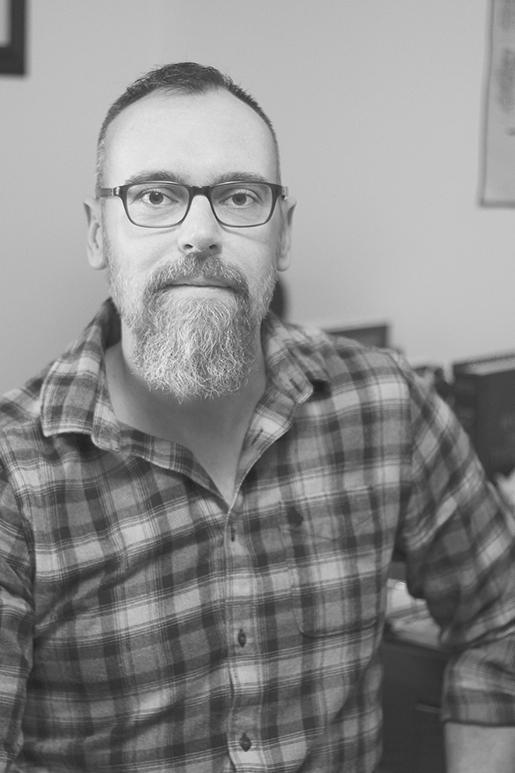
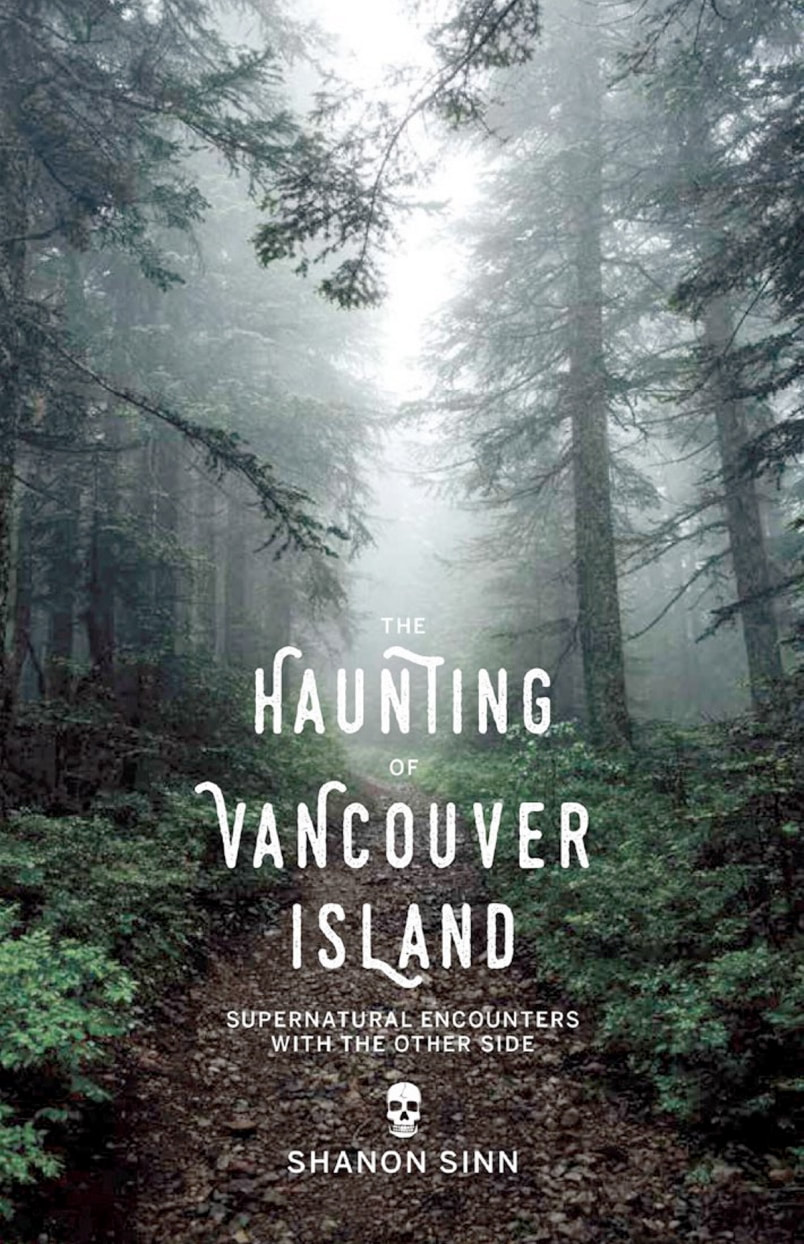

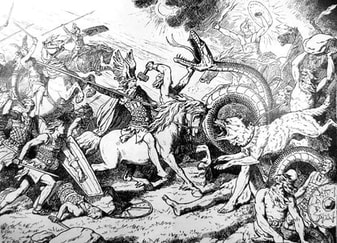
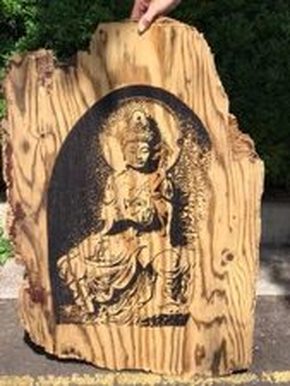
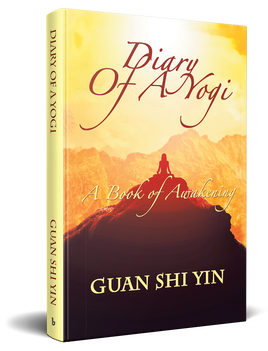

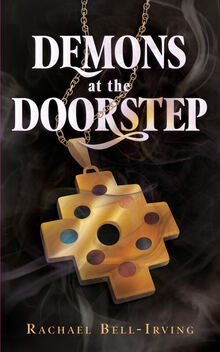

 RSS Feed
RSS Feed
